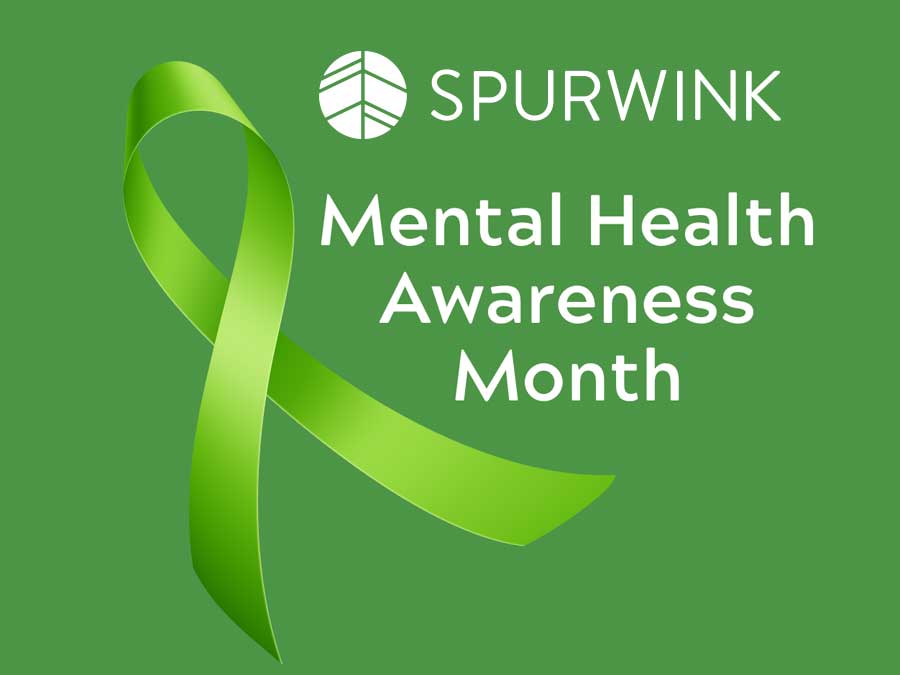
May is Mental Health Awareness month, which signals a time to reflect on our own mental health and the need for more openness and non-judgment on mental illness.
At any given moment, your mental health is in a particular state. Like physical health, mental health varies for each person, every day. However, even though our health always changes, sometimes an issue becomes too much for one person to bear on their own.
According to the National Institute of Mental Health, about a quarter of all U.S. adults are currently suffering from mental illness.1 We know that mental illness tends to be higher among women (+7%), and the age group with highest rates are young adults between 18-25 years (36%).1 Since the turn of the century, we’ve also seen worrying national trends; deaths in the U.S. from drugs, alcohol, and suicide more than doubled between 2000 and 2017.2
Life is stressful. Relationships can end, finances never seem to be enough, and past events and traumas can loom large in the present. Digital technologies connect us like never before, but they have a dark side: exacerbating stress and inhibiting the deep rest our bodies need.
Spurwink is committed to being a mental health leader in Maine. We offer a range of programs that includes counseling, substance-use treatment, and crisis services. However, despite great social progress, stigmas around mental health remain. Simply put, mental health isn’t seen or treated like physical health yet. This is why Mental Health Awareness month is so crucial – it’s an opportunity to reverse our incorrect cultural norms. Culture changes every day – and it changes with one individual at a time.
To connect with Spurwink’s services, you can call our centralized referral department, The Link, at 1-888-889-3903, or connect with us. In addition, many organizations around the country provide excellent online resources to address mental health issues. We’ve compiled a small list below:
- CDS’s recommendations for managing stress.
- Mental Health America screening tools. These free tools screen for a variety of for common disorders, including depression, anxiety, bipolar, post-traumatic stress, and ADHD.
- Child Mind Institute’s symptom checker. For parents concerned about the mental well-being of their child, there is a “symptom checker” (e.g., body image, social problems, and substance use). The institution also has a resource finder and general and a mental health toolkit for dealing with children.
- SAMHSA’s conversation guide. Talking to a friend or loved one about mental health or substance use isn’t easy, but this guide can help you broach the intelligently and respectfully.
- Maine’s Warmline. Rather than a “hotline,” Maine’s 24/7 warmline provides phone support from a trained peer specialist who has life experience with mental health recovery. Call (207) 772-9276.
- The 988 Suicide & Crisis Lifeline. Call 988 for free, confidential, 24/7 help for suicidal crisis or emotional distress. Veterans can use 988 or access the veterans crisis line by pressing “1” after 988.
- National Maternal Mental Health Hotline. Call 1-833-TLC-MAMA (833-852-6262) for free, 24/7 confidential help for mothers or women who are pregnant.
- The National Domestic Violence Hotline. Call 1-800-799-SAFE (7233) for a free, 24/7, confidential line for those experiencing domestic violence.
References
- Substance Abuse and Mental Health Services Administration (2023). Key substance use and mental health indicators in the United States: Results from the 2022 National Survey on Drug Use and Health (HHS Publication No. PEP23-07-01-006, NSDUH Series H-58).
- Joint Economic Committee, United States Congress. (2019). Long-term trends in deaths of despair (Social Capital Project Report No. 4-19). Retrieved from: https://www.jec.senate.gov/public/index.cfm/republicans/2019/9/long-term-trends-in-deaths-of-despair
